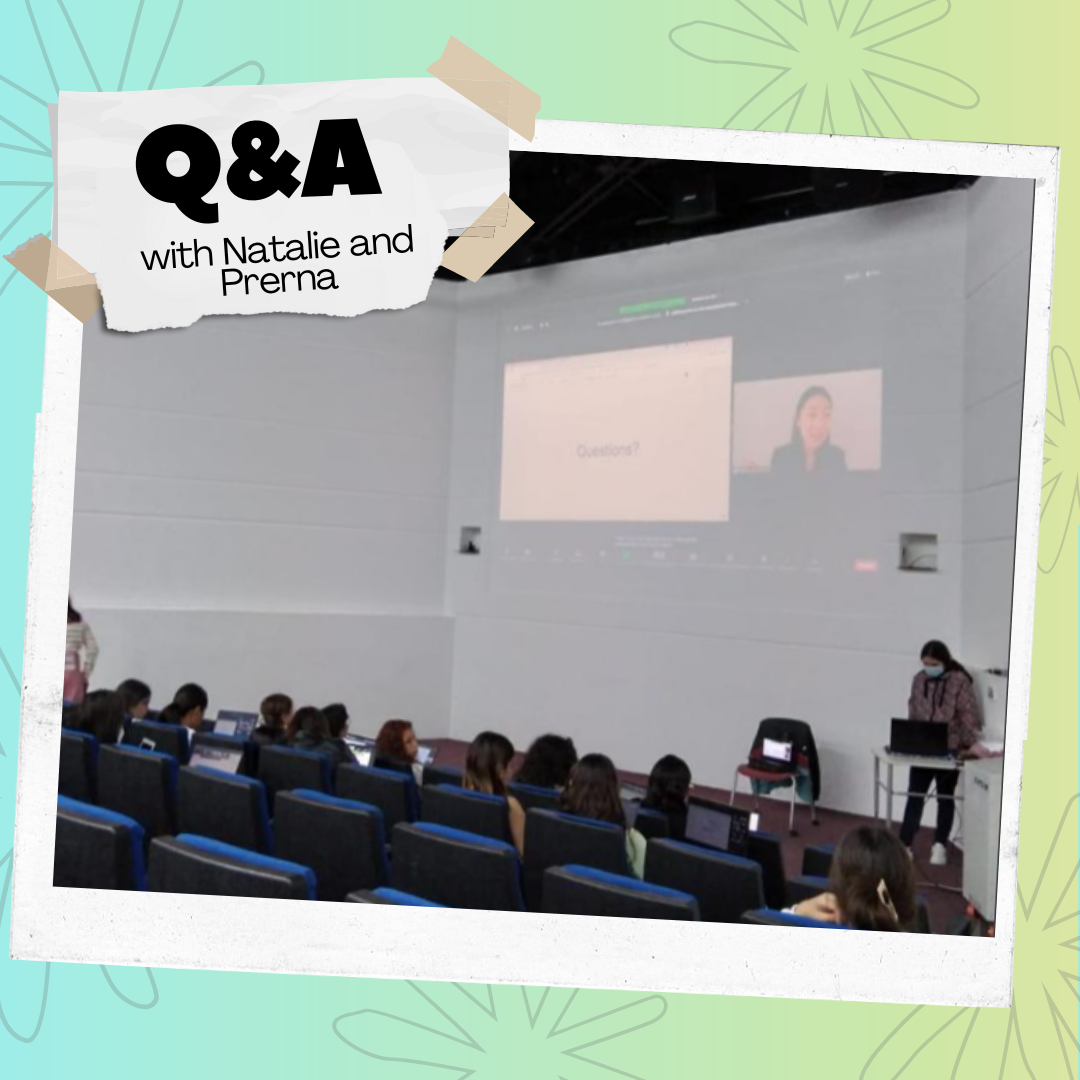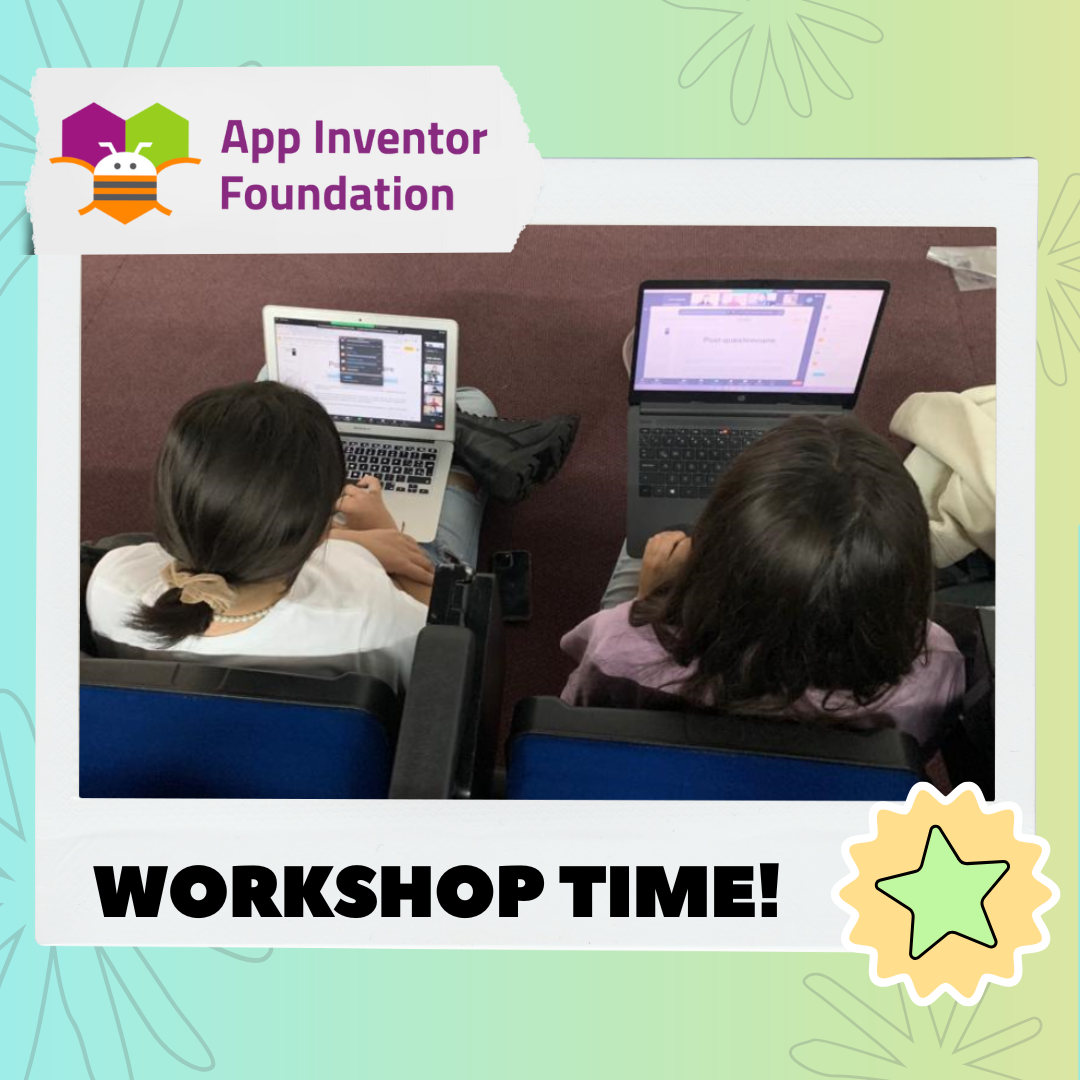High School Girls in Mexico Build App to Track Carbon Footprint
“Since the girls have some exposure to understanding problems surrounding the global climate crisis, the workshop enabled them to use technology to create solutions in the area.”
High school girls from ELENA-Climate Academy attend a virtual workshop hosted by the App Inventor Foundation.
On October 22, the App Inventor Foundation conducted a virtual workshop at the Monterrey Institute of Technology and Higher Education in Mexico in collaboration with ELENA-Climate Academy, a youth-led initiative that empowers girls to use technology to tackle environmental problems.
In the past, girls at the ELENA-Climate Academy have reflected on how natural resources are used and how climate change affects women in particular. They have also explored new technological developments related to sustainability and experimented with mobile and web development, electronics, and chemistry.
The goal of the workshop was to inspire the high school girls to learn more about STEM fields as they think about what they want to pursue after high school. In an effort to expose the girls to computer science and programming, the workshop also introduced them to App Inventor, an intuitive, visual programming tool that allows users to quickly and easily build mobile apps. “Since the girls have some exposure to understanding problems surrounding the global climate crisis, the workshop enabled them to use technology to create solutions in the area,” said Giovanna Romero Contreras of Tecnológico de Monterrey.
Learning about career paths from women in computer science
The workshop kicked off with two researchers from the App Inventor team—Dr. Natalie Lao, Executive Director of the App Inventor Foundation, and Prerna Ravi, an MIT EECS PhD candidate—sharing their journeys and experiences as women in STEM. Lao discovered her passion for STEM education as an undergraduate at MIT, and has since pursued this interest through her involvement with App Inventor. Ravi is similarly interested in empowering underrepresented groups through educational technology, a topic she is currently investigating through a PhD at MIT.
The high school girls were eager to ask Lao and Ravi about their academic and professional journeys in STEM. One question came up about the challenges of attending university in a foreign country. Ravi, who moved to the United States four years ago for college, acknowledged the culture shock she experienced. She urged the girls to take advantage of campus resources for international students and emphasized the value in finding a support system.
The students also wanted to know how they could discover and pursue their passions. Both Lao and Ravi assured the girls that they didn’t know what they wanted to study when entering college. In fact, Lao originally envisioned herself as an electrical engineer working on power grids. But by keeping herself open, she discovered a newfound interest in computer science, which she began to pursue through research opportunities and internships. “Don't give yourself limits and boundaries based on what you think you want,” she advised.
“I felt [I was] in a safe space to develop skills and gain experiences with amazing peers and mentors.”
The last question in the session broached the topic of being a woman in STEM. Ravi shared that she was one of ten girls studying computer science in her high school class of 120 students. While she felt discouraged at first, she eventually found a support system by joining organizations for women in tech. Having that community helped her push past adversity, challenge herself academically, and find success in her field. After the workshop ended, one of the students remarked, “I felt [I was] in a safe space to develop skills and gain experiences with amazing peers and mentors.” It was clear that the workshop had already begun to offer a sense of community and support to the high school girls.
Developing a mobile app to measure carbon footprint
Students used App Inventor to develop a mobile app for tracking their carbon footprint.
After hearing about the exciting prospects of a career in computer science, the girls had the opportunity to dive in and develop mobile apps themselves through a hands-on workshop. Designed for students with little to no experience in computer science, the workshop used App Inventor in order to overcome the common challenges faced by first-time programmers. App Inventor is a free, open-source platform that enables the creation of mobile apps through a simple drag-and-drop interface. Without the hitches of text-based coding, like syntax and compiler errors, users can more easily and quickly develop mobile applications.
“I realized that we can help the planet while helping ourselves as women to learn about technology.”
Through the workshop, the girls learned about carbon footprints, including common sources of emission and the impact on the environment. They then followed a workshop tutorial for App Inventor to develop a mobile app for calculating carbon footprint based on car usage. Within an hour, their carbon footprint apps were up and running on their phones! One student said, “I realized that we can help the planet while helping ourselves as women to learn about technology.” The girls left brimming with motivation to apply their newfound skills and take climate action in their communities.




